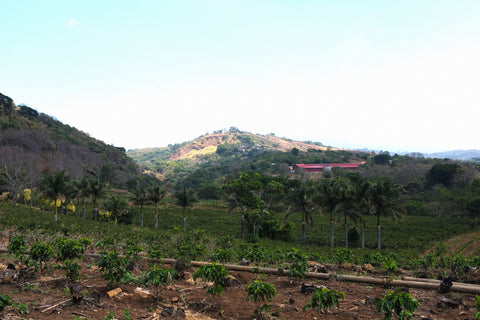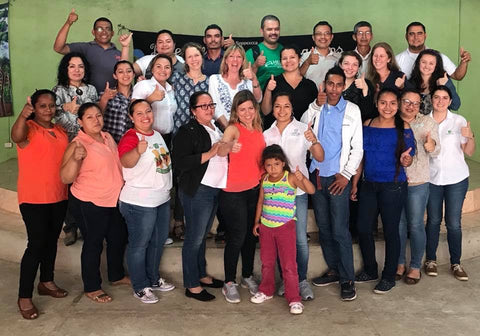Field Notes: Costa Rica - March 2018
Seth Bauserman
When sitting down with your morning cup of coffee, it can be easy to forget that coffee is an agricultural product, and quality and character can vary a great from farm to farm, and region to region. Though we place a great deal of trust in our import partners, sometimes the only way to find the best coffees from a region is to book a flight, go visit some farms, and cup through all the coffees you can find.
I was traveling with several other coffee roasters, all of us guests of Ally Coffee, one of our most trusted coffee importers. We didn’t really know what to expect, but the Ally team had arranged cuppings of dozens of producers throughout the country, the first of which included upwards of fifty washed Costa Rican coffees — all good beautiful coffees pointing to an excellent harvest this year.
The next day was more fruitful as we traveled to the Central Valley to visit Alberto and Diego Guardia, a father/son duo who own and operate Hacienda Sonora. The operation of their 100 hectare estate is based on sustainability. In addition to a commitment to green energy, biodiversity, and sustainable growing practices, over a third of the estate is reserved in wild forest, creating a refuge for wildlife and a diverse ecosystem. Because of the climate in the Central Valley of Costa Rica, coffee is both wet and dry milled on the farm, and the Hacienda Sonora milling station was impressively outfitted and organized. The Guardias had numerous coffee varieties thriving on their estate, the standout of which was a natural process Geisha. We were able to contract the Geisha on the spot and we look forward to it arriving in the US by early Summer 2018.

We next had the opportunity to cup through a large number of honey and natural process coffees from estates throughout the country — these were the coffees we came for. Natural and honey processing highlights the acidity and fruit character of Costa Rican coffees — qualities we’re eager to add to our portfolio. Standouts from the cupping were a Black Honey Villa Sarchi from the Terra Bella Micromill in West Valley and a Typica natural process from La Pira Estate — both super clean, fruity, brightly acidic coffees. We were able to contract both of these coffees on the spot to arrive in the US this summer.
Is it possible we would have had access to these coffees without making this trip to origin? Certainly. Quality importers like Ally Coffee do an excellent job at curating lists of coffee offerings for roasters in the US, but being at origin and experiencing field samples of entire regions of growers provides a unique, broad perspective of what coffees are available, how they relate, how they compare, and which stand out. Trips like this provide us a deeper connection to where our coffees come from, and the work it takes to get them to us. We become more involved in the supply chain and learn a deeper reverence for the coffees we roast for you. In addition to three exciting coffees, I return home with new producer relationships we can begin to grow and nurture to bring you better coffees every season.






